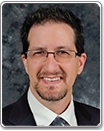
Practice Perfect 669
Learning To Learn
Learning To Learn

There are three psychological topics that always interest me. These are cognitive biases (it’s amazing how governed we are by intrinsic heuristics rather than rational thought), performance improvement (who wouldn’t like that?) and, my favorite: how we learn. Learning how we know things, or epistemology, is a fascinating and useful topic.
I have come into contact with learning and its issues at various points of my career as a teacher at the Western University College of Podiatric Medicine. First, as a teacher and mentor to students, I see that the one consistent error made by those who get themselves into academic trouble is using incorrect study and learning methods. As a residency director, I work hard to instill expertise into my residents, which requires constant cognitive work. This work is made much more efficient through appropriate learning methods. Finally, as a lifelong learner myself, it makes obvious sense that I would want to learn in the best manner possible.
“Understanding how best to learn is probably the most important skill an educated person can have today - Kevin Kelly, the founder of Wired® magazine.”
In fact, everyone living in our society is constantly exposed to new concepts and skills that must be acquired. Learning to use a computer, new applications and programs, learning new technologies, all of us face these challenges. All of these and more require an ability to learn. In fact, Kevin Kelly, the founder of Wired® magazine, has said, understanding how best to learn is probably the most important skill an educated person can have today and advocates universities teaching more of this skill.
To help our readers uncover more of these fascinating topics and learn how to improve their learning skills, I’m going to provide a high-yield bulleted list of some of the highlights from two excellent books on this topic: Make It Stick: The Science of Successful Learning by Peter Brown and Learn Better by Ulrich Boser. I highly suggest reading these two excellent books for more detail.
From Make It Stick: The Science of Successful Learning
- • Learning occurs in three major steps
- Encoding (Converting perceptions into meaningful representations called memory traces. AKA short-term memory).
- Consolidation (Strengthening memory traces, giving meaning, filling in missing information, and making connections to past experiences. AKA long-term memory).
- Retrieval (Recalling the information later. Associating memories with diverse cues that allow later recall).
- • Effort - Learning is deeper and more enduring if effortful.
- • We are poor judges of when we’re learning – This is why passive learning such as rereading is a poor way to learn. It gives us a false impression of our level of retention.
- • Retrieval practice, ie recalling from memory (most of us call this “testing”) is more effective than rereading. Essays, short answers, or practicing a skill are better than true/false or multiple-choice tests.
- • Spaced practice (studying something, stopping, and then coming back to it later) and interleaving (studying one topic, stopping and studying another topic, and then coming back to the first topic) are highly effective study methods, though they feel harder than simply studying one subject at a time.
- • Learning styles - For example, “I’m a visual rather than auditory learner” is not supported by current research. Instead draw on multiple methods.
- • Extracting underlying principles, “Rules,” (or mental models) that differentiate types of problems, leads to more success choosing of answers. Putting new knowledge into a larger context and linking what is being learned with prior knowledge are both very effective.
From Learn Better
Ulrich Boser provides a slightly different perspective on learning in that he approaches this from a systematic format to apply when learning something new.
- Value – A coach isn’t a boss, so there should be a mutually respectful sharing of ideas, minimizing any hierarchical structure as much as possible.
- Target – We need to prepare ourselves to gain a particular skill. To gain knowledge, we need to have a dedicated way to gain that knowledge. He suggests asking yourself, “What am I going to learn? How do I learn it? What’s my learning plan?”
- Develop – Deliberately practice what you want to learn. Tracking and monitoring errors and then working to eliminate those errors is an important part of learning. This requires the attitude that mistakes and errors are opportunities to learn, not something to always be avoided. This book also reiterates the importance of retrieval practice.
- Extend – Build on prior knowledge to create deeper more networked insights. Summarizing or rephrasing the information you learned allows for increased knowledge.
- Relate – Find relationships between aspects of what you’re learning. Look for new perspectives to look at prior knowledge in new ways. Relating something new to something you already know helps build deeper connections and longer memories.
- Rethink – Reflect on what you’ve learned. Put it in the big picture to solidify long-term memory. Sitting down after an activity and reflecting on it creates more learning.
“Summarizing or rephrasing the information you learned allows for increased knowledge.
Relating something new to something you already know helps build deeper connections and longer memories.
Sitting down after an activity and reflecting on it reinforces learning.
Good learning skills are clearly active, deliberate, organized, and focused.”
Both authors relate that typical study methods such as highlighting and passively reading are very poor methods to learn and study. Good learning skills are clearly active, deliberate, organized, focused, and utilize what we know about how memory functions. Utilize these experts’ recommendations to power your next learning episode.
































Comments
There are 0 comments for this article